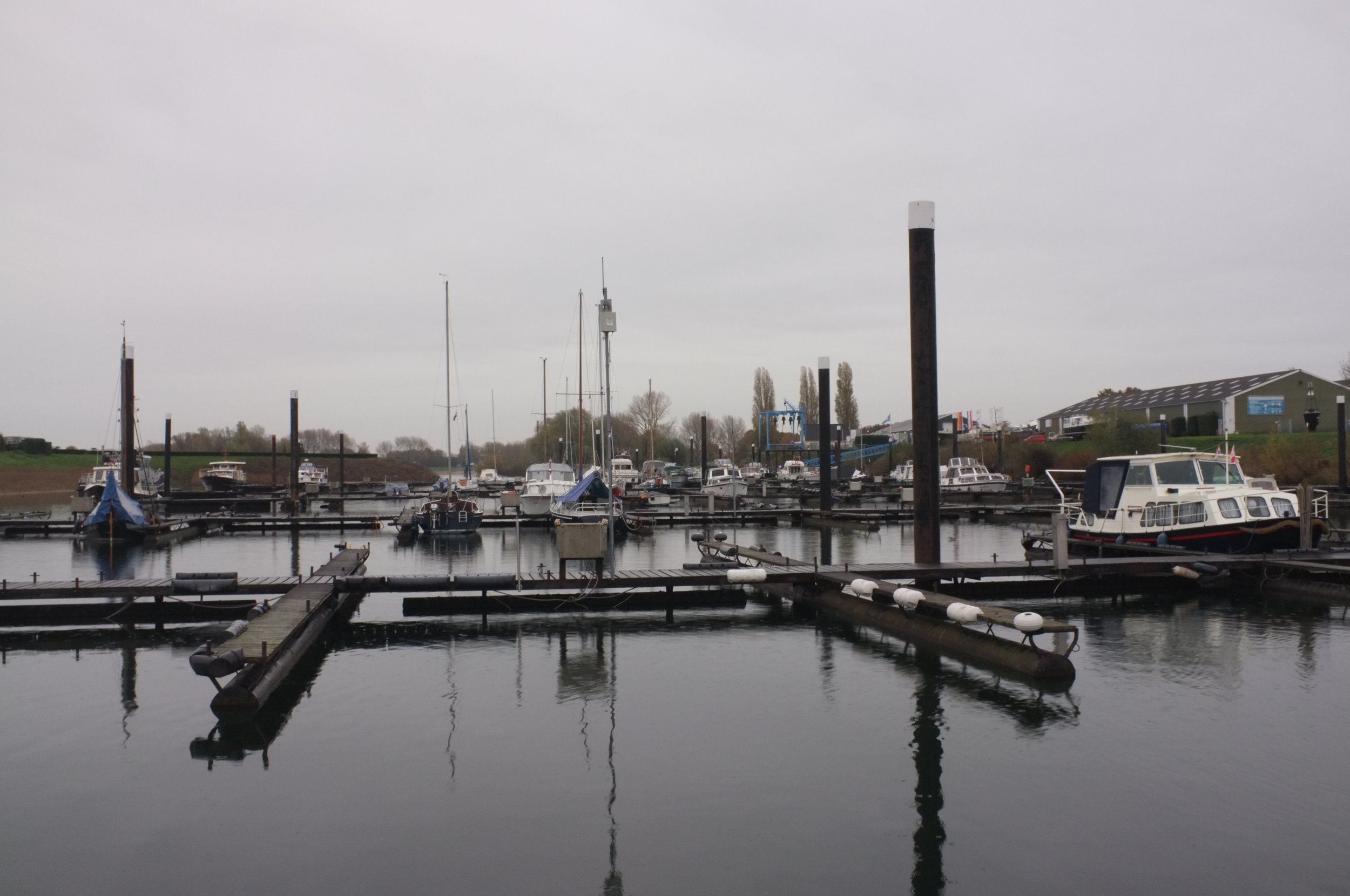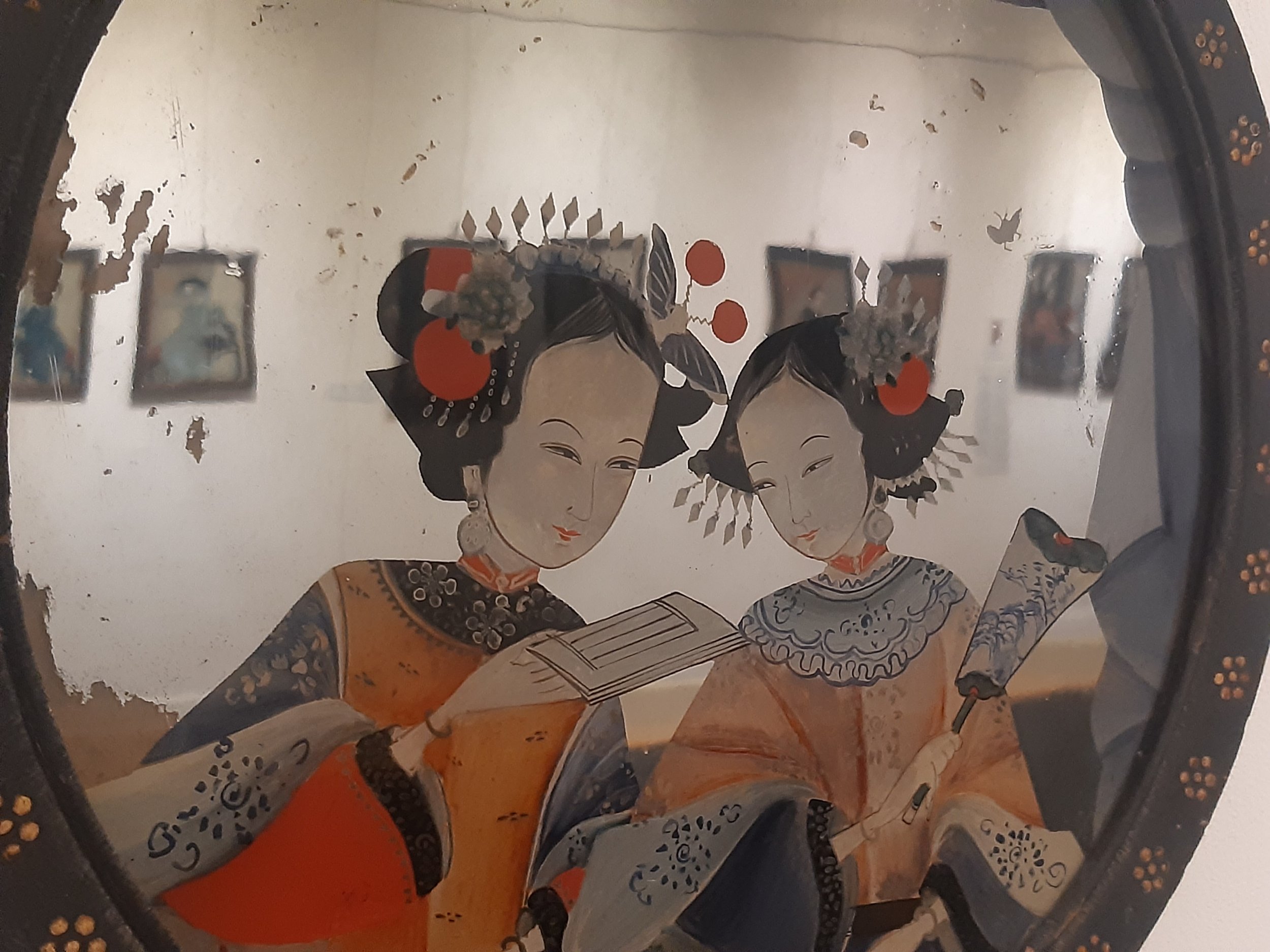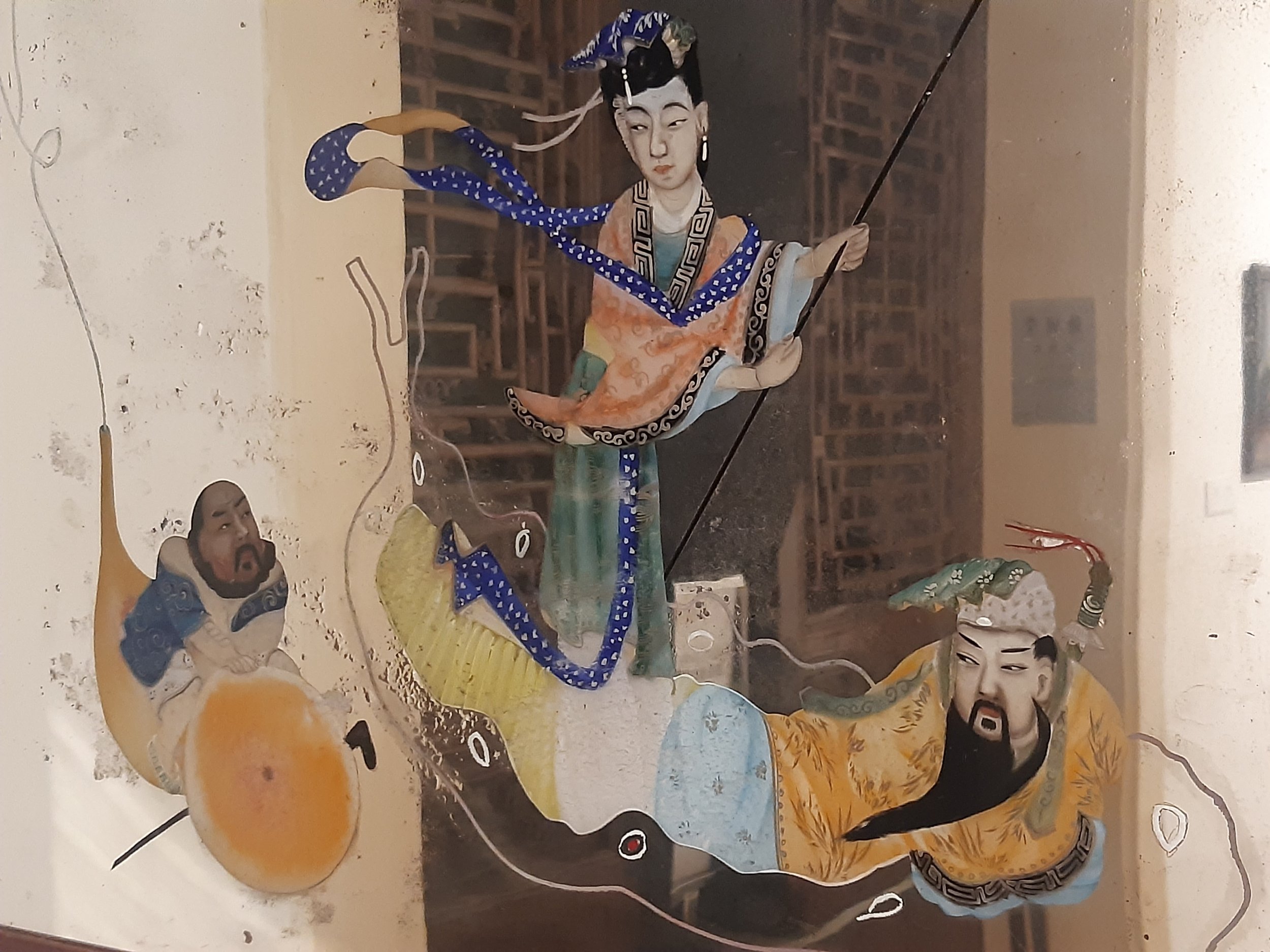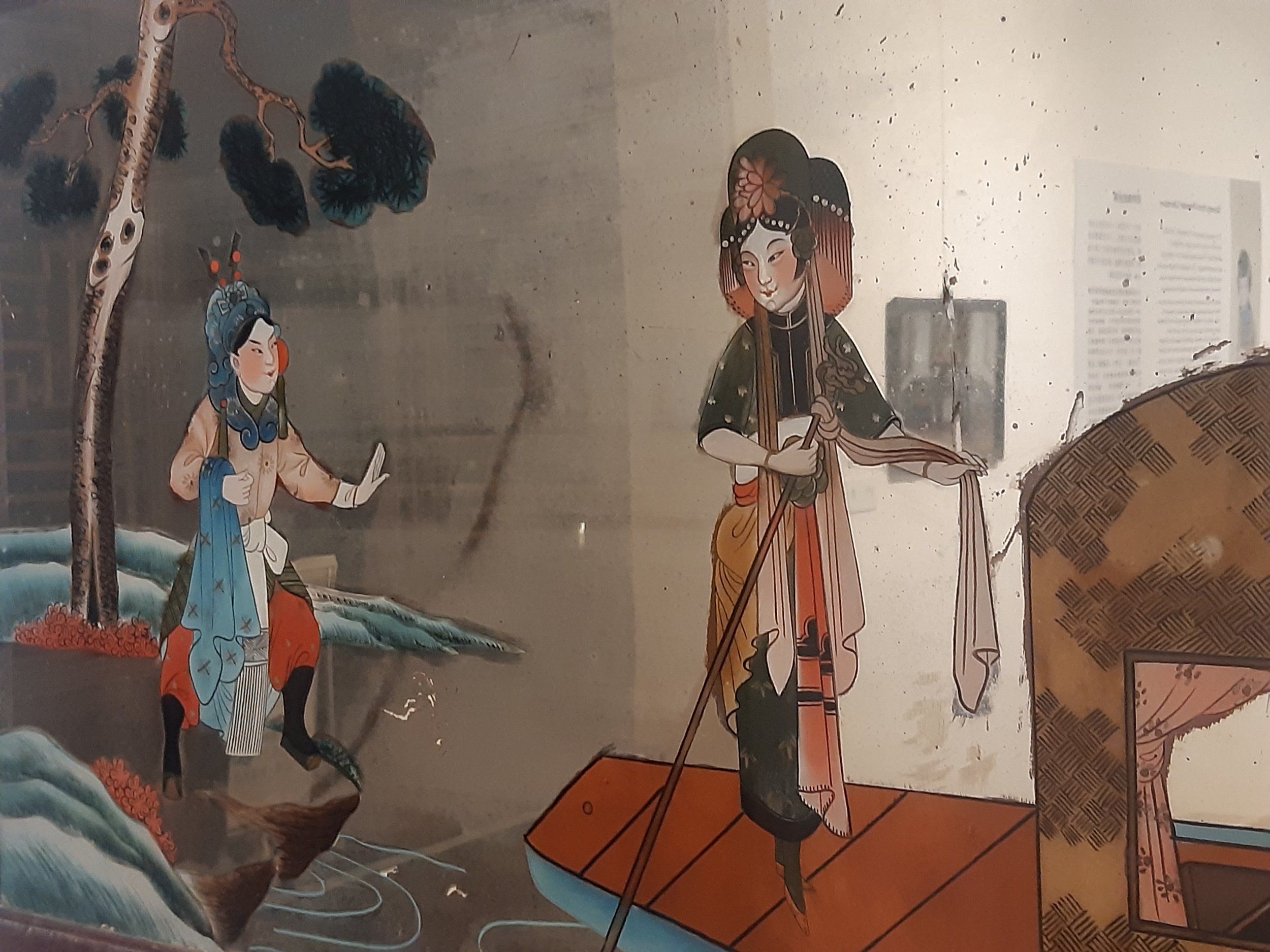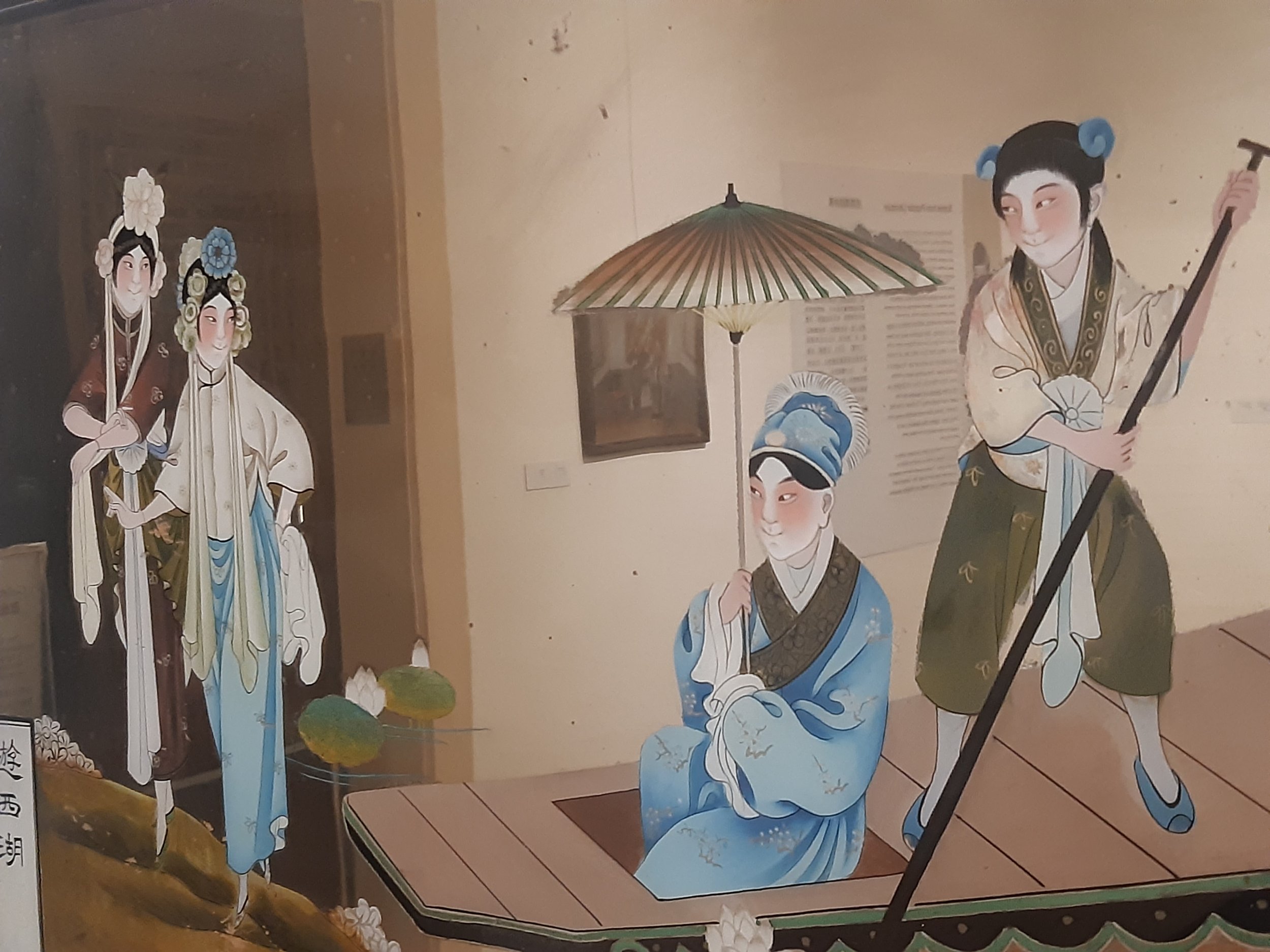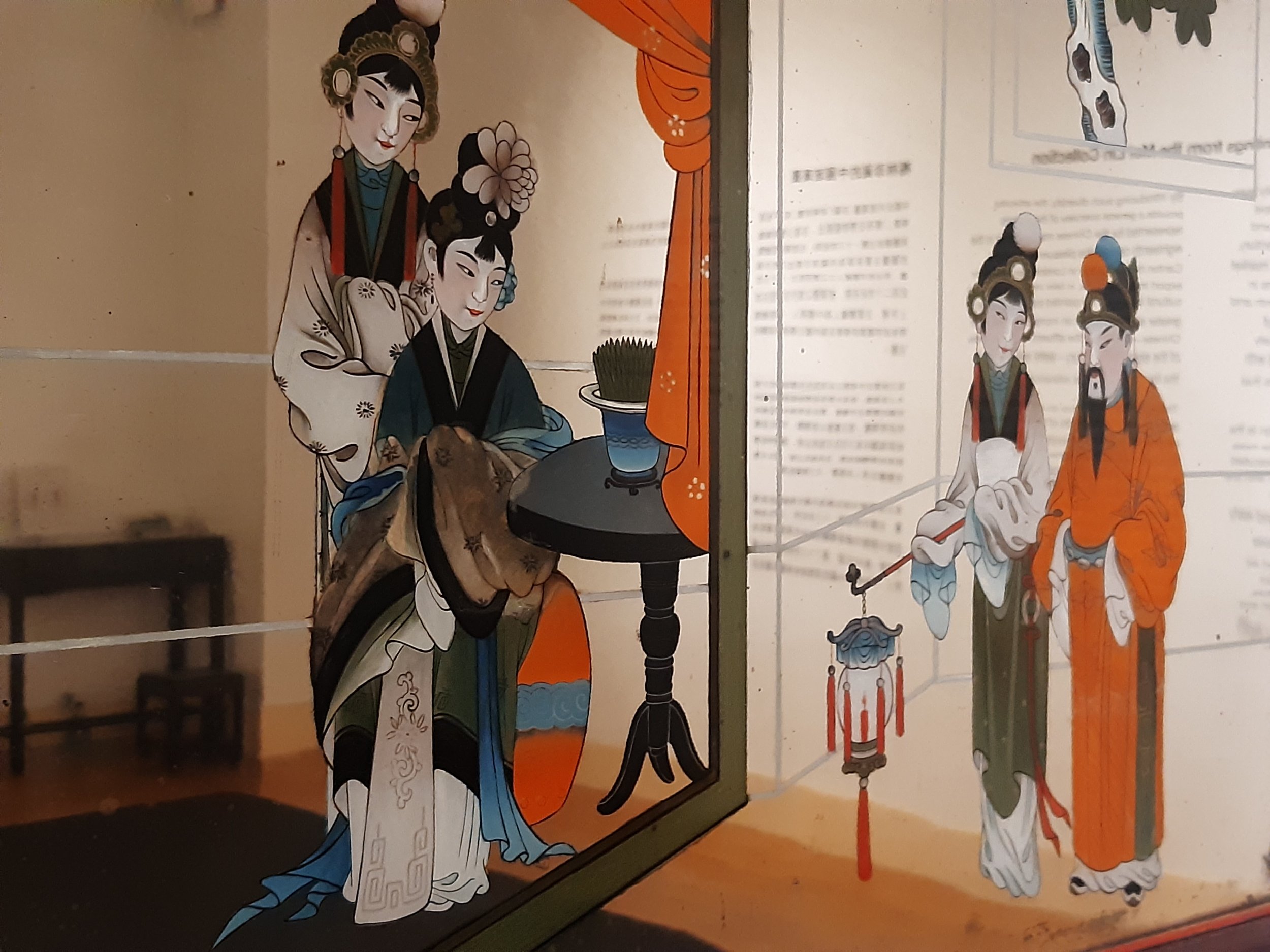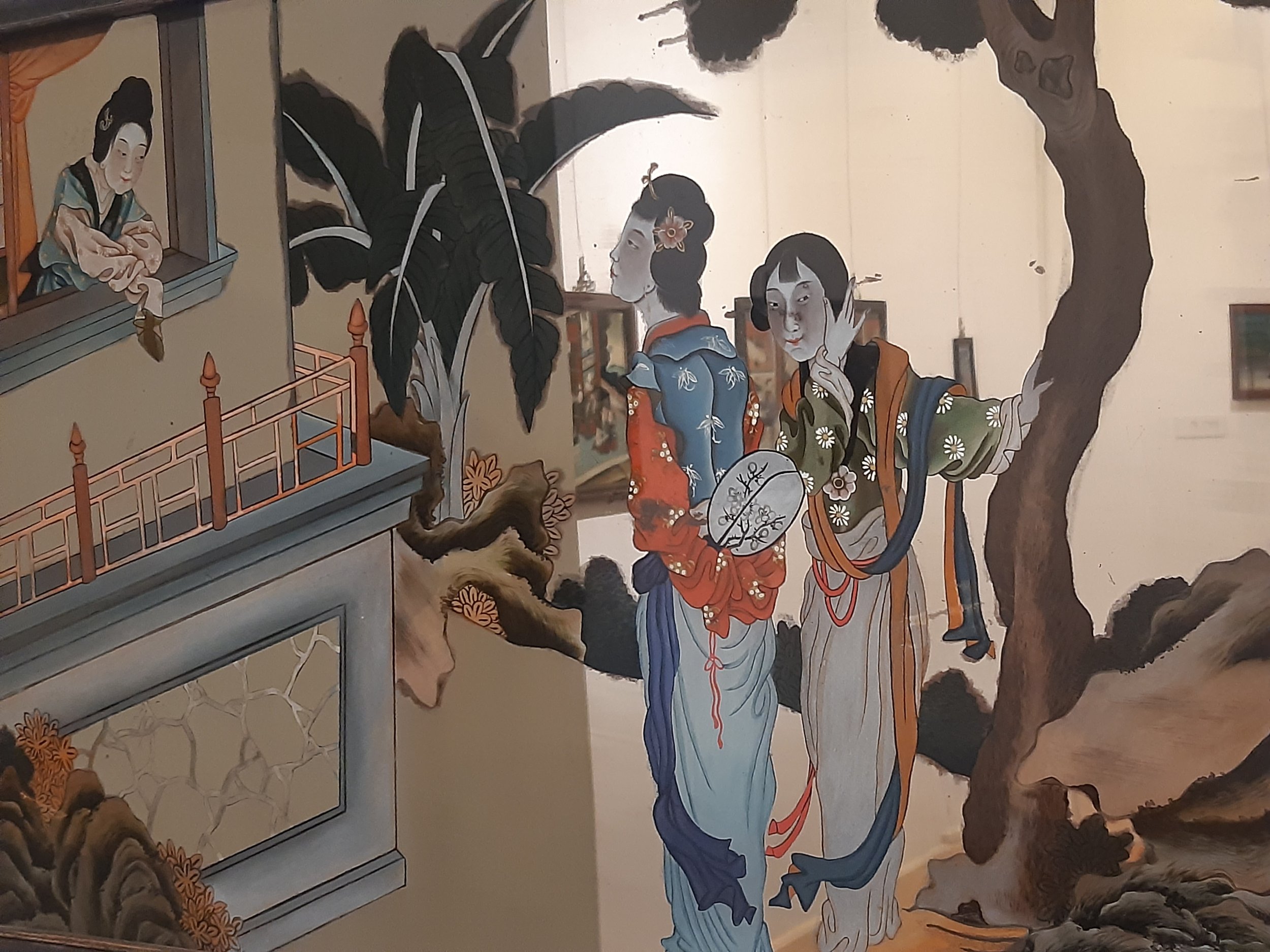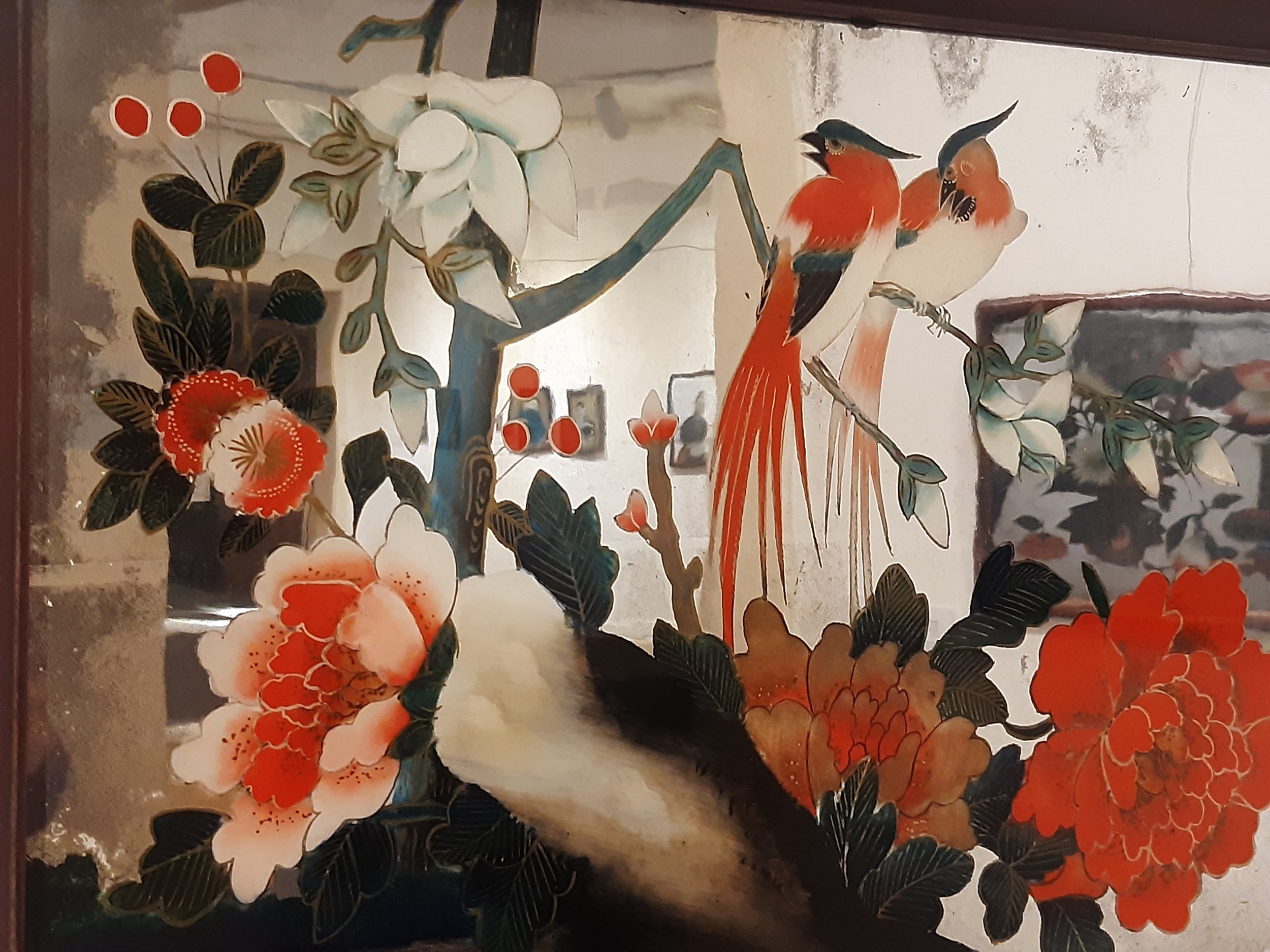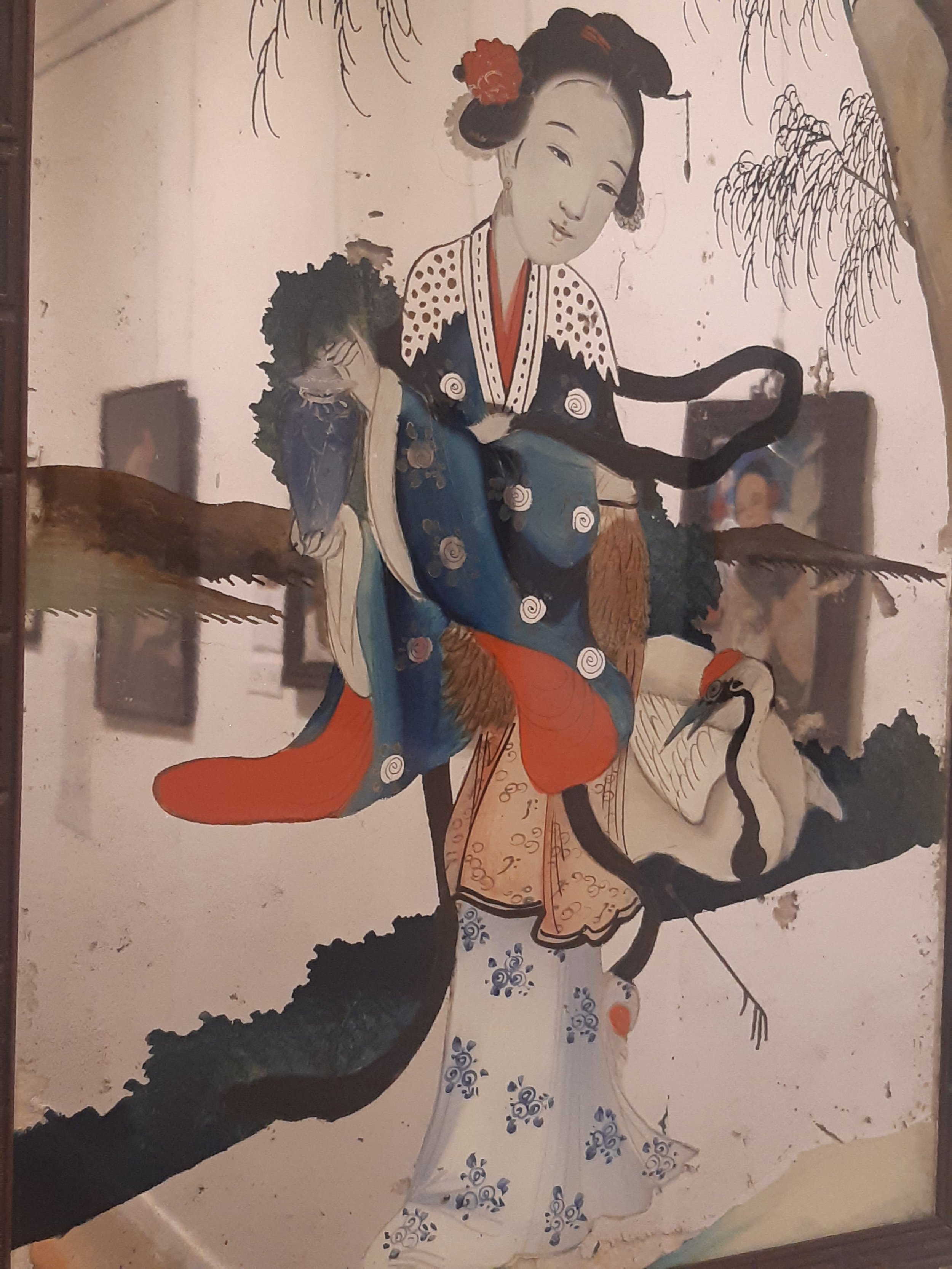The time of my birthday is usually the coldest time in the Middle-European winter. But not this year. I made the boat winterproof in December, when there were actually some minus degrees. But now it is at times + 14 °C, while -14 °C would be seasonally possible …
Boat on the river
My favorite Social Media: Postcrossing
Recently, I enjoyed “Postcrossing” after I heard about it on a German radio station. It is a global platform organizing the exchange of postcards among enthusiasts. As I buy postcards in most places I go, …
Genuinely entered the 21st Century: got a Tablet Computer
On my way out, I picked up a 5G tablet computer. It’s running on Android, and one of the beauties is that I can really write with a “pen” on it. While many predecessors felt more like writing with a banana in the sand, this one is really (!) good. I also considered e-ink tablets like, for example, the …
Hong Kong's Year to Rebuild
As I continued coming to Hong Kong, even during the pandemic lockdowns, I could now feel the optimism of an awakening city after hard years. Troubles started in 2019 with violent riots on the streets and then two years of being literally cut off. Still, crossing over to the Mainland, has some quarantine regulations in place, …
Frankfurt-Riga-Tallinn-St Petersburg-Moscow … and back
"Solar flares" in the grid
"Wanderlust" Riverboat
t’Eiland Marina near Lathum, Netherlands
With some patches of summer arriving, I am using the time, not just to stay on the boat, but also to get it ready for a move. It is a Campi 320 made by the Polish shipbuilder Rivo. With 9,60 meters long and a displacement of 4,5 tons, it is rather handy. The 320 version is a bit special, because, compared with the 300er, as it allows for a 1.40 m x 2.00 m bed in a separate room. The boat has a living room with a spacious front terrace and a bathroom with a shower. A small back terrace can be reached through an extra door, and here is where also fuel, gas and electrical infrastructure is in closed compartments. The engine is mounted on the frame and it allows up to 25 PHP motorization. Given that I want to start moving it from town to town, probably starting next year, I currently test the Yamaha 9.9 High Thrust. It is a very efficient engine, and because of the flat propeller mounted, equivalent to about 15 BHP. Given the high wind drag of such a “houseboat” though, I am not sure how it will be able to cope with strong winds. It is a riverboat. But even in that category, it goes more for the canals than anything with strong currents.
The current location is in Geldersee (Netherlands") and faces a beautiful lake connected to the Ijssel, which is a distributary of the Rhine and, for the Netherlands, a rather fast waterway. To test the waters there a little bit last weekend, I took me and my dog on a Talmarex 3 m dinghy, powered by a small 4 BHP outboard, to the Rhine connection. On my GPS, I measured about 4 m/s currents at a low water level. So, it took me about 2 hours to travel upstream and 6 litres of petrol for the return trip, staying at 3500 RPM (measured by sound, not instrument).
The houseboat in the current motorization would probably cope with the Ijssel. But I consider it unwise, because of the waves caused by cargo ships. For some of these “guys” time is money, and being overtaken a few times at high speed, where the ship literally sucks 1/3 of the whole river’s water through its system, I don’t think the riverboat copes well with the waves. The maximum specs are at 2 feet. But, I would not like to try.
Pour toi Arménie
In memory of the three heroes of the 1977 movie Mimino, set in Dilijan (trailer, see below).
My first introduction to the Armenian diaspora was in the early 1990s through Hasmik Papian, who was performing at the Bonn Opera. I also had the privilege of meeting some of her friends and family gathering in her home in “Weststadt” of the city with late “Gründerzeit” architecture. Back then, being a young science student, this was a formative introduction to an interesting and new genre. Since then Armenia stayed in my mind, and with the many tragedies and disasters, it faced since 1915, which probably have still not ended with the 2021 ceasefire agreement. Of course, I remember “Pour toi Arménie”, a charity song by the Franco-Armenian Charles Aznavour performed by a group of French singers, to gather relief after the earthquake in December 1988. Even though, I have to say this is a little too cheesy for my taste. For long car drives to the Netherlands recently, I do have some other songs sung by Charles Aznavour in my playlist, for example, “La Bohème” and others of his early chansons.
It took more than 30 years until I set my feet into Armenia for the first time, and I remain being impressed by the country and its people. I was originally planning to go to Moscow last week, but with recent events in Ukraine and the implications this has on logistics, activities have been diverted to Dilijan, a small town two hours drive from Yerevan. With a very tight schedule, I did not have the chance to travel around. But Armenia will be one of my coming destinations, to explore more. What surprised me very much to find in Dilijan was the United World College. Inspired by the UWC in Maastricht, Ruben Vardanyan together with his wife Veronica Zonabend, founded this very impressive initiative and I am happy to see it flourishing and alive.
Mimino (1977). The story of a big dream in Dilijan.
5 years UWC. Another story of a big dream in Dilijan.
B&B (Boat and Bicycle)
It is always a nice and special perspective to approach a countryside or city by boat. It is a detached world from the buzz. Living on a boat, is even a step beyond, specially in the Netherlands. And then there is the second Dutch mode of transport: the bicycle. As my Marina is close to Arnhem, I explored the ride on my folding bike to the city. One objective is also to take the bike to the train station and then fold it up and take the train to Tilburg University. This sounds like a nice commute. The best mode of commuting, I ever had was taking ice skates in winter from my home to the office in Beijing. But also, now boat-bike and train sound like a good option.
Where are all the Superyachts gone?
From Moscow with Love
Escalation, war and black humour
Like I was taken by surprise by the falling of The Wall on November 9th in 1989, I am now shocked how fast the curtain is dropping again. I understand the logic and sequence of events, as much as you can follow it in times when war propaganda, Poker and Brinkmanship games have taken over. Now is the 27th of February 2022, a European country is “specially operated to be demilitarised”, and the world is held at gunpoint. All this escalated in less than a fortnight. Yes, the Minsk agreement has not been implemented and war in Eastern Ukraine has been watched (and ignored) by the world for 8 years. Yes, a potential NATO expansion into Ukraine makes it far more of a hiding place for short and medium-range rockets than the Baltics. Yes, American diplomacy can be alien and can be perceived as arrogant. Yes, the main Russian concerns have been ignored in the last minute diplomacy before the “special military operation” in Ukraine. But this shall serve as an explanation for what? For invading a sovereign state? For throwing back the world more than three decades in history? Or even 60 years into a Cuban Missile Crisis scenario? Or even dropping it into the end of history, with new weapon categories? Yes, as in the old Sting piece, “the Russians love their children too”. Meanwhile, in Ukraine, civilians are getting armed. With all respect to the individuals engaging in this, but especially in an urban warfare scenario, this is just a strategy to get more people slaughtered on all sides. Distributing 25 000 AK47 (Kalashnikov) to everybody who claims to defend Ukraine? I would consider it quite dangerous. How does this actually work? I mean, if I need an AK 47 next time to rob a bank, I know where to get it. And now, among others, German-made bazookas (Panzerfaust) and Stinger SAMs are added to that. Isn’t that a little dangerous? I am just asking. Isn’t this arming a partisan war? If yes, is this not a mistake that has been done before multiple times?
President Lukashenko of Belarus is now inviting for peace talks or at least ceasefire negotiations in a location close to Chernobyl. This sounds like a setting for a James Bond movie. I do wish him and the delegations all the best of success for all of us, and especially for people now suffering in Ukraine. And I do hope nobody has a nervous trigger finger. I even feel in the old times, there may have been more communication channels to avoid tactical misunderstanding. Instead, channels are deliberately shut. This worries me.
For Russia falling back on China as a strategic partner: is “system Putin” really so sure, that China will throw an economic lifeline to come to the rescue? Even not talking about the level of Central Government, if I remember correctly from my 12 years of living and working in China, financial institutions will watch their diminishing ROI in Russian investments carefully, and turn their back on it when necessary. And then, what about the long common border between China and Russia’s East? Crossing the Amur/黑龙江 Hēilóng Jiāng river, there are large numbers of Chinese migrating into Russia, which develops the area economically, but also brings risks of community imbalances. I have been there and seen it on the ground. And what happens to the “New Chinese Silk Road”, when a new Iron Curtain comes down? And the Russian elites themselves, being stuck, having assets frozen, having their companies blacklisted? They will not be happy. The Russian middle class, whose savings diminished, will soon have to decide between a holiday in Turkey or a new winter jacket? The same ones who are dreaming of a better life for their kids in a free society. Will they think, this is worth it? And the Russians who get desperate Telegram messages from friends and family in Kyiv and Odesa? Or those who receive the letter, that their son died for a “greater good”? The list can go on and everybody is just losing. Potentially even the people of Eastern Ukraine.
On the other hand, I have to apologize if I missed that Ukraine recently became a shining lighthouse of democracy and human rights. My personal impression was that it would be still a long way, just to handle corruption (somewhere in the category “worse than Romania”). I also encountered Ukrainian professional rioters in Hong Kong in 2019, just flown in to train and brutalize protestors. They used as a personal credential that they were there at the Maidan square in 2014. They were just dangerous assholes, armed with Gerber LMFIIs. But there is another thing, which I failed to realize about Ukraine: Nazis. Sure, there must be some. We have them in Germany too, unfortunately. But most Ukrainians, I know are lovely, friendly and peace-loving people. Like the Russians.
In the end, I guess, we have been all lied to and now just propaganda rages on all sides. Just one, for a change, did very accurate predictions: the US intelligence agencies. Not that I would be a fan, but they were giving fairly accurate predictions, of what is about to happen. New leadership? There is a lot of black humour emerging. I like black humour. But it stops being funny when it meets the current realities.
Hole in the sky
The last time I have experienced such a massive closure of airspace for civilians was in the days after September 11th 2001. Two days later, I flew to Buenos Aires and it started with an evacuation of Hannover Airport triggered by a bomb threat. Finally, we arrived well in Argentina, where the country was in a severe economic depression and surging inflation driven by the pegging of the Argentinian Peso to the USD. Later, in December that year, Argentina busted into riots, and Argentina declared state bankruptcy. In all of this, we had a car factory, with ambitious targets of the newly appointed company president for Argentina, Viktor Klima. Viktor gained experience as a politician before, being the Chancellor of Austria from 1997 to 2000. It took me a while back then, to understand that actually, a former politician can achieve more in this environment than a bunch of restructuring managers.
Back then, there were no cool internet tools to map the airspace, so I literally drew up my maps on the back of an envelope, continuing travel to Brasil, Mexico and finally the US.
Today, it’s a few clicks on the web browser to see a huge hole in the sky over Ukraine and parts of South-West Russia. Personally, I was surprised to wake up to the news, that Russia actually did launch a “special operation” last night, claiming to take out Ukrainian military infrastructure. Russian friends told me, that this clearing of the airspace and rerouting of civil flights started visibly at one in the morning and this hole took shape at around 3 a.m. This morning at shorty after 9:00 Russian media reported that the Ukrainian air defence is largely destroyed. Who knows, what’s true. But given that airspace interference started visibly to the public, just after midnight, I can’t quite understand why Western Media acted so surprised in the morning. Not paying attention? Making a drama? Well, it’s dramatic enough, if you ask me.
Source: www.planefinder.net (accessed on 24.02.2022 at 12:50 GMT+1)
Chainsaws and the way they change how people listen
As expected, two storms in a row, also left a bit of damage in the forest. So yesterday, I took my dog and a chain saw to sort out a few things. Following the trend of electrification, recently I ditched the petrol engine chain saw against a battery-powered model with the Bosch 18 V system. I found it so practical, that I carried it with me also while shopping and for paying at the fuel station. It did not go unnoticed while doing so, that people treated me more respectful and listened very carefully, not just to what I asked, but also to how I said it. And also they smiled more and set their words more carefully. Of course, I know that different dress codes can change the conversation. In Asia, for example, you are treated more respectful when you wear an expensive watch. But, trust me, just wearing my Casio watch and a chain saw completely changes social interaction. I am thinking of taking one into the next management meeting. I am sure, this would have a very positive effect on the way decisions are made. I am obviously not a career coach, but I can see the potential of a whole new category of “dress for success” advice.
By the way, no tree fell in the storm. They are mainly oaks and the storm just took out a few branches, which would have fallen anyway soon. Still, it is a good reminder, not to go into a forest during a storm, but they were cut to handy firewood in no time. Also, it is now time to start planting for the new year. I added 2 apple trees, one pear, three cherry trees and a large number of various forest berries. I am having a walnut tree, which strangely last year did not produce any nuts. Also, I broke open about 30 m² of land at a place with grey-brown podzolic soil, which I will turn into a vegetable garden during the coming weeks.
My work companion (not really working)
Bokashi Silk Thread
During my last stay in Hong Kong, I met Elizabeth Briel, who is an American visual artist, operating in Hong Kong and Athens. We usually take the chance to catch up when I am in Hong Kong, and Elizabeth is always working on interesting projects with a technological twist. This time, she introduced me to a silk thread from Kyoto which is plated with metals, including gold. The material has the properties of silk and gets a metal shine, which can range over a whole rainbow in colours, depending on the metals used. It is a hugely labour-intensive production process, which even includes the work of children, as they have the ability to do such fine work. The material is usually used for high en embroidery. We have seen no woven fabric yet. Talking to Chinese friends, caught their interest. Would it be possible to produce enough of the thread to weave a fabric that can be used in for example an extremely exclusive wedding dress?
Perhaps the answer to this question leads to Tilburg, a city in the Netherlands that once was the centre of a “European wool empire”, and then diversified rather creatively into other industries. But building on this heritage, there is a Textile Lab on the premises of the Tilburg Textile Museum. It is a fascinating place, which acts as a “development lab for makers” in textile. During a visit, I saw that in the lab, there are conductive yarns on the shelf. Would it be possible to produce a silk yarn and twill in a microscopically thin copper thread? Then use the conductivity to plate the silk with gold using electrolysis? What would that look like? And could such a process produce enough to put it on a loom? A few weeks later, I was able to meet Vera De Pont, who is working as a yarn specialist in the lab. Vera kindly met me in the museum library, and Elizabeth joined online to brainstorm on the possibilities of a future project. This was a first and very productive step. I guess, experimenting first with different twill structures and settings of electrolysis is a good way to start seeing what happens in practice. This sounds like occupying a good part of my summer break.
(Photo of the silk yarn by Elizabeth Briel 2021)
"Reflected Beauty" at the University Museum and Art Gallery of HKU
The University of Hong Kong has a small and pretty museum and art gallery at the Bonham Road entrance to the campus. I never fail to pay a visit here and enjoy the various exhibitions, especially those in a Chinese context. The works that are shown in the exhibition on “Chinese reverse glass paintings”, were in the 18th-century export articles to Western countries. Later, in the 19th century, they became popular in China too and often make reference to folk stories and popular literature. It would be wrong to call them “cartoonish”, but they illustrate often mythological stories in a quite pointed and dramatic way. It is about stories like Taking a boat trip on the West Lake, or The Legend of the White Snake. Other paintings are still lives of objects finally in the republican period, there are a lot of ladies portraited, a bit in the fashion of posters or even calendar illustrations. The exhibition has been assembled in collaboration with the Lei Ming Collection and is still running until January, 30th 2022.
Leaving Quarantine
Some years ago, I joked about Hong Kong, that it would not be a city but a vertical storage and logistic system for live human bodies. The whole purpose of Hong Kong is to move human bodies efficiently between boxes to produce GDP. I just spent two weeks of quarantine in Wanchai and was impressively demonstrated by my view on the cemetery that the final box of this process is the tiniest one and does not have windows. I am joking again. Of course, there are other things you can do professionally in Hong Kong. For example, build the boxes. Or think in boxes.
Don't get me wrong, I have fond memories of this city, as I lived on Lamma Island for five years. Some of the best of my life, I may say. I love the South China Sea, the outer islands, the hiking trails, the black kites, the Bauhinia trees, and some places where there is still a character of hard work against all the odds and succeeding. It was not long ago that people swam into Hong Kong for freedom and prosperity. And these people worked incredibly hard, and you can still find this culture of resilience in some quarters. If you want to learn something about entrepreneurship, then close the textbook and get a plane ticket.
In the end, Hong Kong is a historical anomaly. It would not exist hadn't the British violently forced open the Chinese market and occupying this "rock" for a hundred years before returning it to its homeland. Later as a colony and ruled by appointed governours to serve British interests, it became a loosely regulated financial centre - with all the consequences this entails.
Also, some local tycoons made their fortune, often by getting government concessions and licenses or by smuggling and drug trade and diversifying into Casinos in Macao. There is a fixed term for some British bankers who came here during the wild days: "FILTH" (Failed In London, Try Hong Kong). Recently, the pendulum is coming back, though. Let's call it FIHKRL; even it's hard to pronounce. So now London builds an amalgamation of FILTH and FIHKRL. It's probably a good choice that a comedian now governs the UK as a Prime Minister. At least in a democracy, people get what they deserve.
At 00:01 a.m., my quarantine ends, and I will go out into "the wild" again. I am looking forward to it, getting a first hand impressing and catching up with friends. On Saturday morning at 9:30 a.m. I will start with teaching an 8 hour MBA block class. This is always a pleasure, and I hope I won't act too funny in front of the first real humans I see after two weeks. Forgive me if I do.
Syllabi lullaby in Hong Kong quarantine
I am spending 2 weeks in quarantine in Wanchai. Public health policies in Hong Kong SAR here are an unfortunate mix of virology, superstition and politics. That’s why I am locked up here. But luckily, I have a lot to prepare, and also took the task of writing syllabi and filling in course alignment tables. Today, I got across Bloom’s taxonomy for cognitive levels. Reminds me a little of crossword competitions, when elderly ladies meet in the local community centre. I guess it’s like ISO 9000 for academics. So I just get it done. But there must be easier ways to play this game than with an Excel sheet, especially when thinking about aggregating all these on a School or University level to tick the box for some accreditation or government body.
It’s funny, I have never seen even a course syllabus in the old times. We just had a University-wide “Vorlesungsverzeichnis” (course directory) which you could buy for 5 Deutschmark at the university bookshop. This contained basic information, like the title and the lecturer and a brief description of the content. As a student, how I used this at the beginning of the term, was to mark all courses that interested me. If I did not know the lecturer, I went to their bulletin board to see what they were working on, and to the library to look up their publications. With a completely overloaded starting schedule, I then went to every first lecture for “speed dating” the courses and the lecturers. Only then, I had a look at the programme requirements and considered what I need to do, But these requirements (pre-Bolognia convention), were relatively loose. Should I have noticed that most of the things, I am interested in are not on my schedule, I would have changed to another programme, because obviously I was enrolled in the wrong game.
Now, this may sound inefficient. But I finished my studies at the appropriate time, with an outstanding grade and even received a research prize for my “Diplomarbeit” (master thesis). I also worked as a research assistant, and as a junior scientist in the UK, while still enrolled in Cologne (Germany). This allowed me, to pay back my Bafög (a sort of government student loan supporting my living expenses) in one instalment, which got me a huge discount. Together with being fast and having outstanding grades, I qualified for other reductions, and I really nearly paid back nothing. Tuition was free anyway, as it still is. I also received a little scholarship of 150 Deutschmark per month for books, which I mainly spent on oats, spaghetti and baked beans in tomato sauce. Books I got from the library. So, I also learned among these a few life skills. For my PhD I received a full scholarship from the DFG (German Research Foundation). This was of course far more specialized and I really had to drill deep in my subject. Even though, I was lucky to work in an interdisciplinary team (Graduiertenkolleg) of scientists and engineers.
Now, after a long corporate and entrepreneurial career, I am on the other side of the game. A lot changed. For about a decade already I am splitting my time between commercial work and academia. I am taking the practitioner's view on lecturing. This is why I do enjoy Executive Education and EMBAs quite a bit. But also the young and inexperienced students are great fun to teach. And for research, I have the privilege to get exposure in commercial projects, which give me a quite focused reason to find things out and apply them.
Perhaps also this attitude is rooted in my own University time, which I was very fond of. Besides my supervisor, Prof. Dr Helga Besler (yes my boss was a woman in a “man’s” domain), turned up another character: Prof. Dr Gerhard Bischoff, a geologist. He was trained as a German Luftwaffe-Pilot in 1943 - 1945, as a last agonizing attempt of Nazi-Germany, to get even younger men slaughtered, in the stage of “totalen Krieg” (total war). Luckily for him, he was not shot out of the sky, but the planes were destroyed unmanned on the airfield. So, what can a young pilot do after the war? For example, go to Australia, develop geomagnetic surveying equipment and explore by plane ore deposits for example. With further geological understanding, he realized also that there are oil source rock deposits on the Western Amazon, and as Chief Exploration Officer of Petroperu, he discovered oil there. This brought him to further think about his own plate tectonic models. When I had a geology exam in his office, he started with throwing me a stone ashtray and asked: “What is this?” Then he sat down on an elephant foot stump and lighted a cigarette, offering me one (which I rejected, being a non-smoker).
It was also no secret that the relationship between him and my boss, Helga Besler, was about more than just exchanging rock samples. One day a book volume of airborne photography of Namib dunes (her research field) turned up in her inbox as a gift. It was my job to manage the post for her, so I took this out separately and put it on her desk. Like with any gift from a gentleman, the price was concealed by black ink. So, she told me to go to the lab and try first ethanol, then acetone to find out how much he paid. I was afraid though, that the solvent may damage the book, and so I just went 2 floors down to his office, pretending that I want to buy the book also for myself and asked for the price. I was told the price, asked in for a chat, we looked through the book with the opening sentence: “And these are Helga’s dunes. I have been on the top. Quite a satisfying view”. Then came laughter and smoke blowing my direction. They don’t make these people anymore. They both passed away in 2001 and 2012, after a long and rewarding life, which also included some dunes.
Philharmonix
The last concert tickets were for Anne Sophie Mutter in the "Alte Oper Frankfurt". The concert was cancelled, though, and all music for a year came from loudspeakers. Concerts, theatres, libraries, museums and cinemas were among the few things I really missed in the Covid-era - I think we can call it "era" by now. And so did most like-minded people.
Finally, the first concert was an exceptional event, not just because the ensemble was great, but also because it was an event at all. The "Philharmonix" played in the Rheingau Musikfestival in the Wiesbaden Kurhaus. It was brilliantly played, arranged, light-heartedly presented and funny. So, no surprise, it received standing ovations by the culture starved audience. I also liked to see that the audience was relatively young for a "classical" concert. Hygiene rules were implemented strictly. So was the verification of vaccination certificates. It did not feel in any way an infection risk. I think, like this, cultural life can resume.
New infection numbers are rising in Germany though - slightly, but the trend is up. Of course, this is an effect of relaxed measures and lax handling of hygiene rules by the Covid-fatigued population. What worries me a bit is that there is also vaccination fatigue creeping in. That could be dangerous. Not even to mention the format chosen for the European Soccer Championship. Congratulations to Italy, by the way.
Philharmonix - Swing on Beethoven

